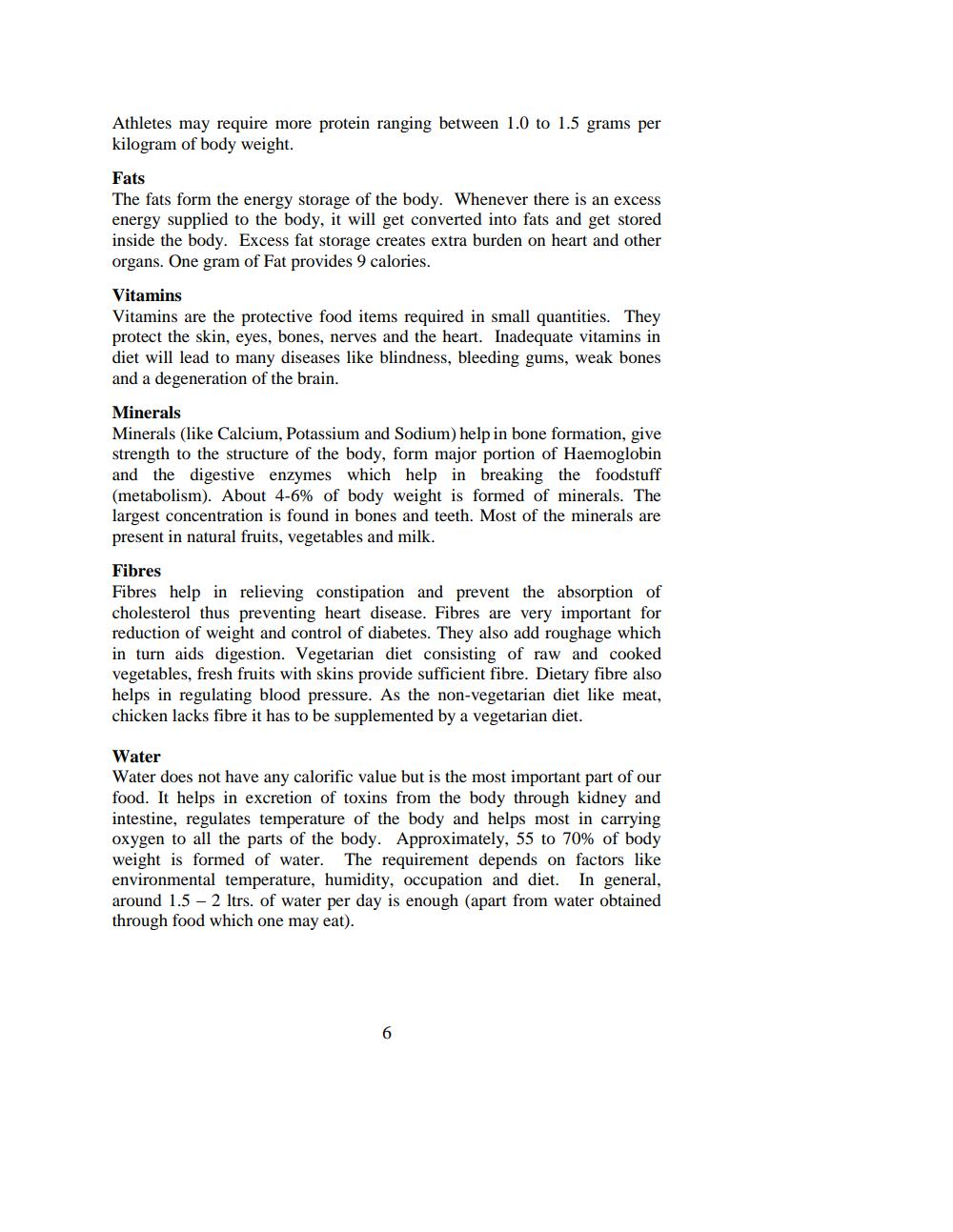Book Title: Vegetarianism Scientific And Spiritual Basis Author(s): Jashwant B Mehta Publisher: Jashwant B Mehta View full book textPage 7
________________ Athletes may require more protein ranging between 1.0 to 1.5 grams per kilogram of body weight. Fats The fats form the energy storage of the body. Whenever there is an excess energy supplied to the body, it will get converted into fats and get stored inside the body. Excess fat storage creates extra burden on heart and other organs. One gram of Fat provides 9 calories. Vitamins Vitamins are the protective food items required in small quantities. They protect the skin, eyes, bones, nerves and the heart. Inadequate vitamins in diet will lead to many diseases like blindness, bleeding gums, weak bones and a degeneration of the brain. Minerals Minerals (like Calcium, Potassium and Sodium) help in bone formation, give strength to the structure of the body, form major portion of Haemoglobin and the digestive enzymes which help in breaking the foodstuff (metabolism). About 4-6% of body weight is formed of minerals. The largest concentration is found in bones and teeth. Most of the minerals are present in natural fruits, vegetables and milk. Fibres Fibres help in relieving constipation and prevent the absorption of cholesterol thus preventing heart disease. Fibres are very important for reduction of weight and control of diabetes. They also add roughage which in turn aids digestion. Vegetarian diet consisting of raw and cooked vegetables, fresh fruits with skins provide sufficient fibre. Dietary fibre also helps in regulating blood pressure. As the non-vegetarian diet like meat, chicken lacks fibre it has to be supplemented by a vegetarian diet. Water Water does not have any calorific value but is the most important part of our food. It helps in excretion of toxins from the body through kidney and intestine, regulates temperature of the body and helps most in carrying oxygen to all the parts of the body. Approximately, 55 to 70% of body weight is formed of water. The requirement depends on factors like environmental temperature, humidity, occupation and diet. In general, around 1.5 - 2 ltrs. of water per day is enough (apart from water obtained through food which one may eat).Page Navigation
1 ... 5 6 7 8 9 10 11 12 13 14 15 16 17 18 19 20 21 22 23 24 25 26 27 28 29 30 31 32 33 34 35 36 37 38 39 40 41 42 43 44 45 46
